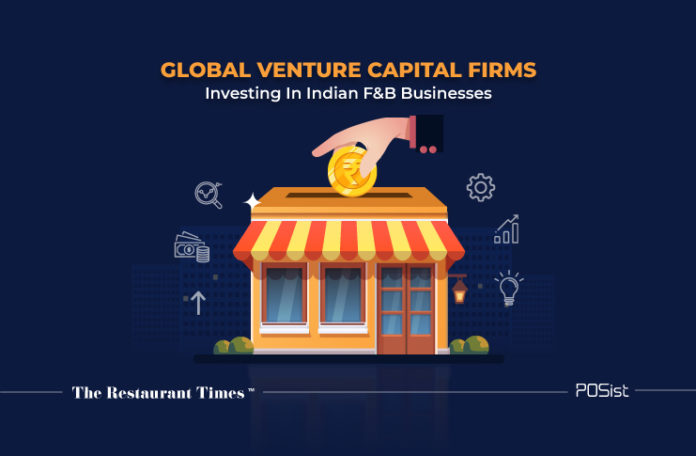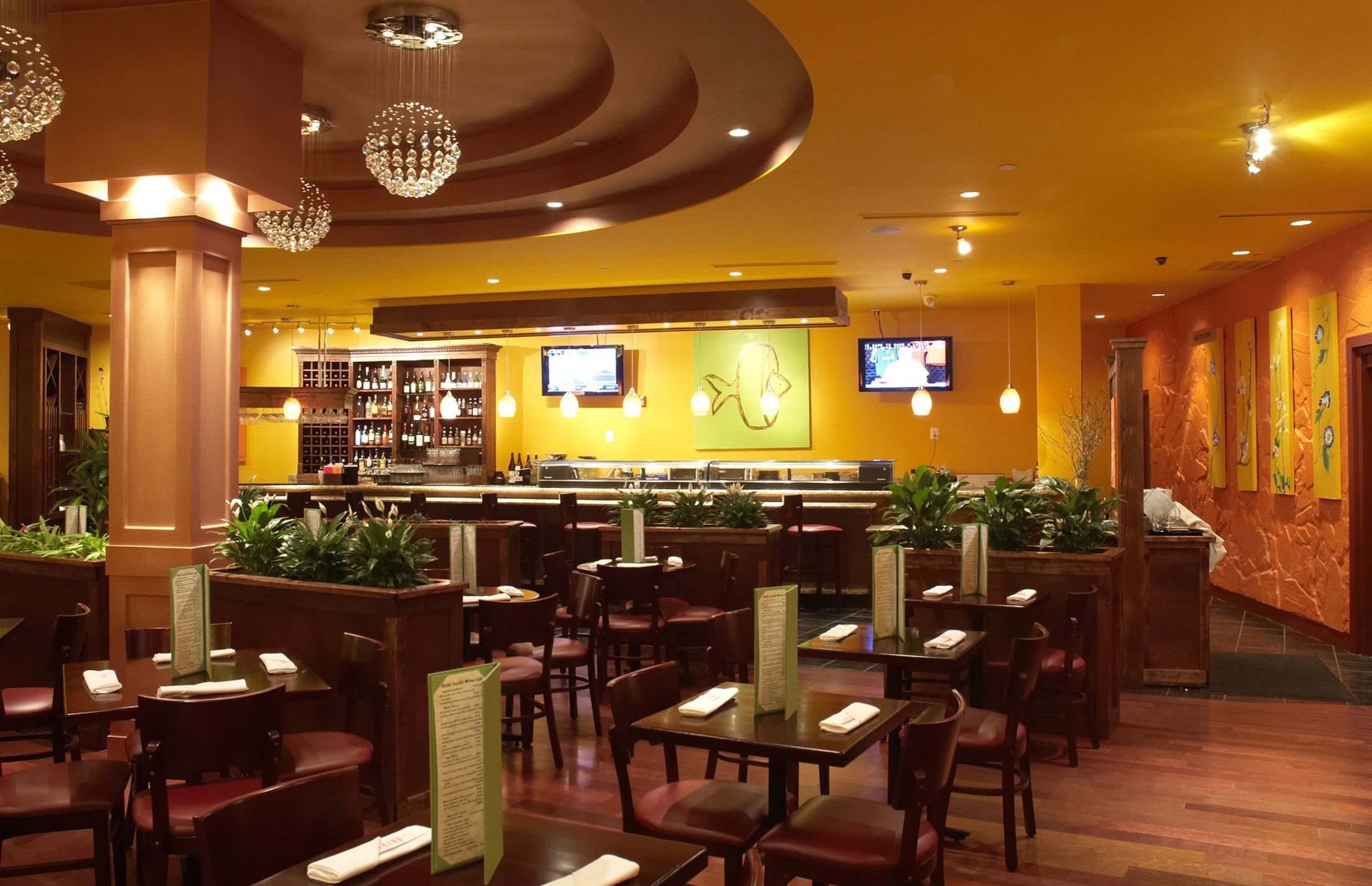Access to capital from angel investors, venture capital firms, private equity and debt is set to change how the food and beverage industry in India does business.
India’s F&B industry is evolving faster than ever. Global brands have entered the burgeoning market which is expected to gross revenues of $540 billion by 2020. The Indian food palate has also evolved over the years with a wide variety of cuisines becoming popular. The rapid growth being witnessed by the industry can be attributed to growing disposable incomes and aspirational lifestyles of the country’s young population.
Many restaurant owners are aware of the opportunities to scale their business. However, they adopt a conservative approach given the large amounts of capital required to fund expansion. However, with Venture Capital (VC) firms, angel investors and even private equity funds arriving on the scene, new investment avenues are now available.
The business case for more investment is clear. From innovation in food, operations, packaging and the overall experience, capital is a key enabler. It has also led to faster adoption of technology across the entire supply-demand cycle. Cloud Kitchens are a powerful example of the potential of the F&B sector.
Below are a few important instances of fund-raising in 2018 – 2019 :
- F&B major MTR announced a seed fund of INR 50 cr to fund F&B innovation
- Cloud kitchen startup Rebel Foods raised $125 million. They operate one of the most significant cloud kitchen operations under the brand Faasos
- Zomato reportedly invested $15M in Loyal Hospitality
- Lo! Foods raised $500K from early-stage investors
- B9 Beverages raised $4.3M with a plan to raise $100M
- Wow Momo! Is planning a fund raise of INR 120-150 cr
In this blog, we cover the following:
- Interesting macro-insights for the restaurant owner
- Why Venture Capital Firms Are Taking A Keen Interest in the F&B Industry?
- Essential Questions that a VC would ask you while fundraising?
- Recent Venture Capital raised by F&B companies in 2019
FundRaise Insight #1: Angel & VC Investors Are Keen Because The F&B Industry Is Now Getting Organised
Over the years, the F&B space in India has been slowly getting organised. The interesting fact is that this shift is driven by customer demand. Customers are looking for products & experiences that are healthier and more affordable. By adopting global best practices, the Indian F&B sector is targeting cost savings and greater operational efficiency.
India’s consumer story needs no validation. Investors clearly understand the opportunity to build large brands with multiple outlets to suit the diverse demand across India.
Active VC firms are quite bullish on the F&B industry in India. Krishna Vinjamuri, Principal, LightBox Venture Capital says,” With a growth of 10% every year, about 33% of the industry trends are slowly getting organized. Taking this as an advantage, we can build larger brands with multiple outlets,”
A rough estimate suggests that the industry has received close to about INR 5000 crores of funding in the last four years, which is half the money invested in this industry over the previous 20 years. That is huge progress!
FundRaise Insight #2: VC Investors Are Keen On The Cloud Kitchen Model Serving The Growing Indian Middle Class
Swiggy, Zomato, UberEats (in India), have proven that the well connected and fast evolving Indian middle class is ready to pay for convenience. The multi-million dollar fund-raise done by the above ventures clearly has validated the future of cloud kitchens in India.
Market studies show that the demand for online ordering is only going to grow. This is a clear sign for investors of assured returns in the medium to long term.
FundRaise Insight #3: Private Equity Investors Have A Considerable Interest In Home Grown Food Brands With The Potential To Go Global
Haldiram’s, the iconic Indian brand, recently announced that it plans to raise INR 2500 cr via private equity. In 2017, L Catterton Asia acquired a majority stake in Impresario Entertainment & Hospitality. As per a report, the deal valued Impresario at INR 400-450 crore. (source : Livemint)
But why Private Equity and not banks? This is an important question to ask, especially if you are concerned about maintaining your ownership / controlling stake in your F&B venture.
Most F&B businesses don’t have immoveable property assets. Mostly properties are leased and hence banks are not always keen to fund the sector. This is where the role of PE funds becomes important.
FundRaise Insight #4: Angel, VC & PE Investors Are Keen On The Rise Of Branded F&B Products
The changing food and lifestyle preferences of the millennial audience is pushing restaurant owners to think brand, health and scale. Some restaurateurs are already experimenting by launching packaged branded foods as alternate offerings.
A restaurant owner in Delhi recently told The Restaurant Times that he was launching an after-party drink with Ayurvedic properties that would help reduce hangovers by up to 60%. “The drink is being positioned as a value add for our existing customers and can be retailed across the shelves anywhere,” he explains.
LO! Foods is a rising example in this category. The founder of LO! Foods, Sudarshan Gangrade, recently shared at the F&B Talks – Bangalore Edition by Posist :
“At an early stage, we have been able to attract some of the most aspirational and trusted names from the F&B industry as our backers. This gives validation to what we are doing.“
How Can You Be Fund Raise Ready?
For the F&B entrepreneur, fundraising is not a simple function of arriving at a multiple at which pre-money and post-money valuations can be derived. A well defined business strategy that lays out how the money is to be spent is critical. Similarly for the F&B investor, the experience of the team driving the business is of extreme importance.
#1: It is the team at the helm of operations that gives confidence to the investor. If your core team -CEO, CFO, Chef, and GM- is strong and experienced, it increases your chances of successfully raising capital.
#2: Customer loyalty comes first. The restaurant business is, in many ways, the business of entertainment. In the few hours that a customer spends at your establishment, he/ she is plugging out from the usual and plugging into a new experience that he/ she will either enjoy and rave about OR never return back to.
A strong business model for the restaurant owner is not only a function of sales and unit economics. The loyalty and affinity that your customers feel towards your brand will always make your case stronger.
#3: Be clear about the money that you are taking: seed, growth or scale?
Seed money is when you are barely starting shop. You have a firm conviction in the market potential of your idea, and you are raring to go. At this stage, the restaurant owner will find more private backers (HNI’s) than structured capital providers (Angel groups, VC, PE).
Growth stage is when you have run your restaurant operations for 3-5 years. You have vital learnings, and you know where you are headed. At this stage, you can attract structured capital in equity and in debt too.
Scale capital creates value when you are operating as a cloud kitchen or as an FMCG brand in the F&B space. This is when you can seek funding to power the next phase of expansion of your business.
#4: Your brand is your elevator pitch. For an external investor to fund your execution capability and vision, it is essential that they believe your narrative.
#5: Equity or debt: This is an important consideration. The choice of capital depends upon several factors. Both kinds of capital have their pros and cons. A more fundamental concern for the restaurant owner must, hence, be to on-board investors that genuinely believe in the vision you hold for the brand.
Other common questions that you must have answers to:
- Whether you have a structured company> (Pvt. Ltd. ideally)
- Do you have a business plan with forecasts that are mapped to unit-level economics?
- Are you aware of the market size and the opportunity that you are going after in the coming future?
- Can you hire, train and retain talent? E.g., chefs, GM’s and other staff?
- What difference will you bring to the market that competitors have missed out on?
The F&B Deals That Attracted A Lot Of Attention In 2019 :
Consider this: Tracxn!, an analytics firm that tracks several performance indicators across startups, shared these revealing insights: Between 2014 and 2015, about 23 investments in new ventures totalled $167 million, or about Rs 1,060 crore, in the offline F&B space. Food tech companies attracted about $92 million, or about Rs 585 crore, across 26 deals.
According to a survey by MoneyControl.com, 2018 was the year of food startups in India with funding worth $7.5 billion raised. This number is expected to increase further in 2019. The focus has now shifted to scale and product/service differentiation.
Let’s have a look at some very recent examples :
i) A Massive $5million FundRaise By Biryani By Kilo through IvyCap Ventures!
Biryani By Kilo or BBK is a well-known F&B brand in India. The current round of funding, as per the founders, will be used to expand the brand’s presence across India. The BBK has mapped the Indian taste for the famous Biryani and packaged it in a quick consumable format while retaining its traditional appeal.
Biryani By Kilo is considered to have immense potential and is already ranked as the most popular food brand by leading online food aggregators in India. “The market value of the brand is estimated to about Rs 1500 crores in the organized sector and Rs 15,000 crores in the unorganized sector,” says co-founder and CEO Kaushik Roy about the market potential of the brand.
In an interview with the Economic Times, he was reported as saying: “BBK has the potential to create a global footprint by positioning biryani as an Indian counterpart to the western burger and pizza.”
Earlier in June 2018, BBK also raised a round of funding led by CX Partners founder Ajay Relan. In the past, it has received funds from other investors including Chandigarh Angels Network.
ii) Swiggy Closes In $750 Million For A Total Valuation of $4 Billion
Swiggy, one of the leading online food delivery firms, managed to raise $750 million, led by existing investor Naspers. (source: Livemint)
The company, with a valuation of $3.3 billion, is the fifth most valuable startup in India. The money is expected to be used to improve the company’s presence in the hyperlocal business segment. Swiggy is also targeting growth in Tier II and Tier III cities in the coming years. It has already expanded to 42 additional cities across the country.
iii) B9 Beverages (brand : Bira 91) Backed By Sequoia Raised $4.3 M
B9 Beverages, which manufactures and sells famous craft beer brand Bira 91, is looking to raise $100 million in funding. They are backed by Sequoia and have already raised about $50 million.
The following three Venture Capital firms put their money in the brand this year:
-
- Anicut Capital : US $11,00,00,000
- Korea Investment Partners, Vertex Ventures: US $1,15,00,000
- Sixth Sense Ventures: $56,00,000
Furthermore, Bira 91 had received funding from Sequoia Capital in 2016 and again in 2018.
iv) Daalchini Technologies Raised Around $500,000!
Daalchini Technologies, a vending machine company, has raised $500,000 in a seed round, led by early-stage venture, Artha Venture Fund.
Since investing around $180,000 in Chotta Haazri Food Pvt Ltd last year, Artha Venture Fund has had a keen interest in the growth and potential of the F&B industry.
v) Hunger Box Was Able To FundRaise $6,590,000 From One 97 Communications Ltd, Parent Company Of PayTM!
Founded in 2016 by food tech veterans Sandipan Mitra and Uttan Kumar, the B2B aggregator, Hunger Box raised $2.5 million in a pre-series A funding last year, led by Lionrock Capital and Kris Gopalakrishnan of Infosys.
vi) &Me And Country Delight Raised Money From Matrix Partners India
Matrix Partners, a leading venture capital firm, has invested about INR 70 crore in CountryDelight. They also invested in &Me.
These investments clearly make the case stronger for entrepreneurs to focus on innovation in the F&B space.
The Key Market Trends For The F&B Industry Entrepreneur to consider
- The shift towards greater organisation to drive efficiency and growth.
- Large scale use of technology to boost consumer demand.
For today’s F&B entrepreneur, growth is a function of identifying unmet niches and investing with the long term in mind. If you are looking to scale your business and want to understand how technology solutions can help you lower operating costs and improve efficiency, we invite you to speak to our experts.

















